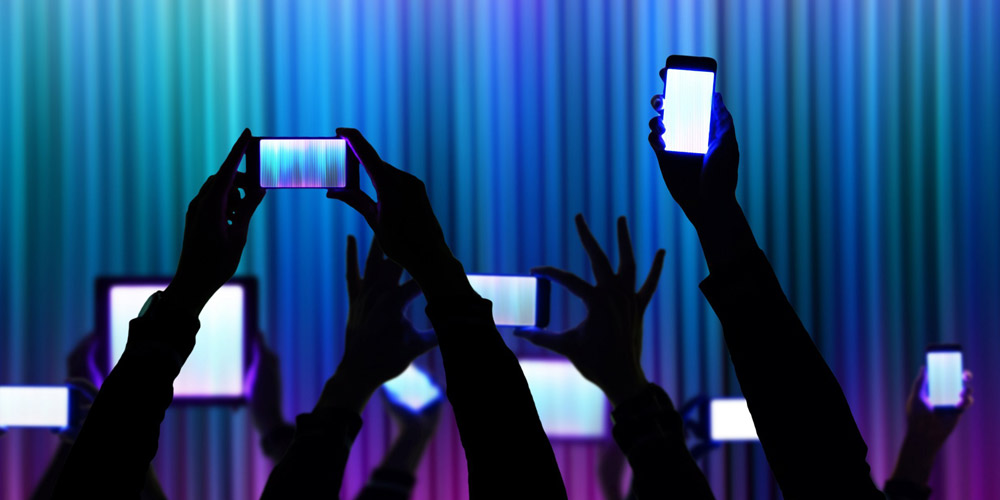Back in the late 1990s, the time when early generations of netizens started to know about the internet, the world was very different.
Using telephone number on a conventional telephone line, people use modems to 'dial' and connect to the internet using a mere speed of 56 kbit/s (using the V.90 or V.92 protocol), although in most cases, 40–50 kbit/s was the norm.
Fast forward to the matured internet, where netizens are pampered with fiber optics and megabits to gigabits of data per second, they are accustomed to speed.
This comfort is mostly enjoyed by younger generations, and it's turning them impatient.
Most of these people expect fast downloads, quick uploads, and instant experience. They are irritated when waiting for a content to load, and more likely to lose their temper when dealing with slow connection, if compared to older people who lived with the internet in the 1990s.
This kind of frustrations around internet connectivity and download speeds, is known as "load rage".

According to the Urban Dictionary, load rage can be identified by the frustration, stress and anxiety expressed both physically and non-physically when a computer or game system is loading particularly when one is rushed.
Welcome to the "distracted age", the era where people are glued to the screen. Occupied with the internet and the very things it has to give, controlled by big titans of the web, like Google and its products, Facebook, Twitter, Instagram, online shops, mobile games and more.
The impact of such 'rage', can affect mental health, particularly in young people.
These people are making up most of the internet's population. They turn the cogs of the web with creative and interesting contents, at the time when older generations tend of be occupied and preoccupied with their daily real-life routines.
Younger generations are more willing to spend more of their time on the internet, essentially making themselves the most potential targets for tech companies revenue.
Both Apple and Google have introduced tools to enable users to monitor their screen time, and limit app usage.
For good reasons, most people who are addicted to the internet, need a moment to 'switch off' and 'disconnect'. It hurts tech companies, but for the well-being of its users, and scrutiny from the governments, they have no choice.
But nothing much has changed.
With better and more powerful devices, broader connection and better internet speed, the internet has properly given businesses billions of people as potential users. People won't simply turn away from the experience, because there are just too many things to do.
This essentially put anger next on their list.

So how long does the patience last?
According to a survey by Chinese manufacturer OnePlus, it only takes 60 seconds for users to get annoyed while waiting for phone content to download.
This 'load rage' felt when waiting for something that is slow to load, is a result of fatigue of what the internet has to give, which isn't at all surprising.
From social media posts, to things sold online, and videos to songs that can be streamed, to the activities when browsing the web. When all adds up, there are just too many things to do, in so little time.
With each given day that never goes longer than 24 hours, people are increasingly worried that they cannot catch up to what they usually do.
For example, when Facebook was young, there weren't that many posts with images and videos. The platform weren't that attractive with less user to target, and also less colorful. No gimmick, the social giant was straightforward.
Instagram and some other social media that power the web weren't even born yet. YouTube wasn't that ubiquitous, influencers weren't many.
At that time, 1 hour to 2 hours a day should be enough to most people.
As social media grew up to become they are today, people are already garnering thousands of friends and followers. On Instagram, there are tons of interesting posts, and too much to like and comment. Twitter has become a place where people burst their thoughts in many interesting ways, and with powerful smartphones, there are endless mobile games waiting to be played.
For small and new businesses, the competition is indeed high. To showcase something and attract user attention, they need to struggle to get even a second of people's 'preoccupied' time.
For big businesses, unless they are already sitting on the throne and enjoying the breeze at the stratosphere, the market is increasingly occupied with others similar.
Most generations of the 1990s and older may not be the most active users of the web. They may not worth much for tech companies, and may not be as interesting as their younger counterparts (probably by excluding their purchasing power, knowing that most of these people have a more stable financial status).
But for tech companies, these people's patience should be a virtue and rewarded.